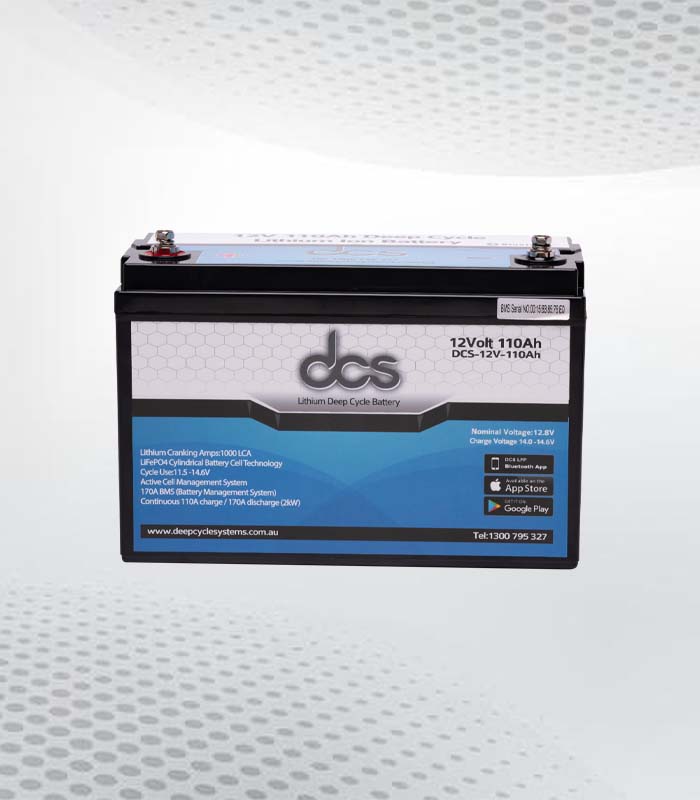When hitting the open road in your motorhome, having the right battery can make all the difference. Whether you’re venturing into the wild for boondocking or settling down for an extended stay at a picturesque campground, finding the best motorhome battery is crucial. The perfect motorhome battery ensures you stay powered up and connected while enjoying those breathtaking views. With so many options on the market today, how do you choose? That’s where we come in. Join us as we explore everything you need to know about selecting and maintaining great batteries for your adventures on wheels!
Understanding Capacity Ratings: What Makes the Best Motor-home Battery?
When selecting the best motor-home battery, understanding capacity ratings is crucial. Capacity determines how much energy a battery can store and deliver over time. It’s typically measured in amp-hours (Ah). The higher the Ah rating, the longer your power supply lasts. Another important factor is the discharge rate, which indicates how quickly a battery can release its stored energy. Motorhomes require batteries that have high capacity and sustain output during peak demands like running appliances or lights.
Additionally, consider depth of discharge (DOD), which reflects how much of the total capacity you can safely use without damaging the battery. Lithium-ion batteries often boast higher DOD than lead-acid ones, enabling more efficient usage and prolonged lifespan. Look for temperature tolerance as it affects performance. A versatile battery performs well across various climates, ensuring reliability for all adventures.
Choosing the Best Motor-home Battery for Your Adventures
When selecting the best motor-home battery for your adventures, it’s essential to consider your specific needs. Think about how often you’ll be boondocking versus staying at RV parks with power hook-ups. This will influence whether you need a deep-cycle battery or something more versatile. Look for batteries with high capacity ratings, especially if you’re planning extended stays away from civilization. Lithium batteries are gaining popularity due to their lightweight nature and impressive longevity, but they come at a higher price point. On the other hand, AGM (Absorbent Glass Mat) and flooded lead-acid options are also effective but may require more maintenance and have different performance characteristics.
Make sure the battery’s specifications align with your motorhome’s system requirements. Check compatibility with inverters and chargers to avoid any nasty surprises down the line. Review reviews and consult fellow Rivers about their experiences; personal recommendations can provide valuable insights. Ultimately, researching before purchasing ensures you’ll choose a reliable motorhome battery that meets all your adventure needs while providing peace of mind on every journey. Happy travels!
How to Install the Best Motor-home Battery for Optimal Efficiency?
Installing the best motor-home battery is vital for maximizing your adventures.
Choose the right battery.
Before installing a motorhome battery, you need to ensure you have the right one. When choosing a battery suitable for your motorhome, consider factors such as size, voltage, and capacity.
Disconnect all power sources.
Before installing a new battery, it is crucial to disconnect all power sources from your motorhome. This includes turning off all appliances and disconnecting shore power or solar panels.
Locate the old battery.
The next step is to locate your old battery. In most cases, this will be in a compartment on the exterior of your RV or under the hood.
Remove the old battery.
Once you have located the old battery, use pliers or a wrench to loosen and remove the bolts holding it in place.
Clean the terminals
Before installing the new battery, clean any corrosion or dirt off the terminals with a wire brush.
The Benefits of a Lithium Battery Motorhome: A Comprehensive Guide
Lithium-ion batteries stand out when considering the best lithium battery motorhome for boondocking and extended stays. Their lightweight nature makes them easy to handle while maximizing your vehicle’s efficiency.
- Lithium-ion batteries offer a longer lifespan compared to traditional lead-acid options. With an average of 5,000 cycles or more, they significantly reduce the frequency of replacements. This means less hassle and more time enjoying your adventures.
- Charging is another area where lithium-ion batteries shine. They can charge much faster than their counterparts, allowing you to quickly replenish your power source during stops or when connected to solar panels. This feature is particularly useful for those on extended trips in remote areas where access to power may be limited.
- These modern batteries also have built-in management systems that protect against overcharging and deep discharging. Such features enhance safety and longevity—two critical factors when you’re far from your home base.
- Another significant advantage lies in their energy density; lithium-ion batteries pack more power into a smaller space. This compact design allows for maximized storage without compromising other essential components of your motorhome.
- Cost-wise, while the initial investment might be higher than traditional battery types, consider the long-term savings from reduced maintenance costs and fewer replacements. Plus, you’ll enjoy peace of mind knowing you’ve chosen a reliable option designed for modern RV lifestyles.
Maintaining Your Lithium-Ion Battery Motorhome for Longevity
Maintaining your lithium-ion battery motorhome for longevity involves a few essential practices. Regular monitoring of charge levels is crucial. Keep an eye on the state of charge and avoid letting it drop below 20%. This helps preserve the life cycle of your battery. Temperature control plays a significant role as well. Lithium batteries perform best in moderate temperatures, so storing them in a climate-controlled environment can prevent extreme heat or cold damage. Regularly inspect connections to ensure they are tight and free from corrosion. Clean terminals gently with baking soda and water if any residue builds up.
A clean connection aids in efficient power transfer. Using appropriate charging equipment is key, too. Always opt for chargers designed specifically for lithium-ion batteries to avoid overcharging or damaging them. Consider periodic health checks on the battery system to catch potential issues before they escalate into more grievous problems. By following these maintenance tips, you’ll enhance performance and extend the lifespan of your lithium-ion battery, ensuring countless adventures ahead without worrying about power supply issues!
Understanding the Cost Implications of a Lithium Battery for Motorhome
When considering a lithium battery for motorhome, it’s essential to look beyond the upfront cost. These batteries typically have a higher initial price than traditional lead-acid options. However, their longevity and efficiency can make them more cost-effective in the long run. Lithium-ion batteries often come with 5 to 10 years or more warranties. This durability means fewer replacements, reducing overall expenses over time.
Additionally, they offer quicker charging times and deeper discharge capabilities without damaging the cells, maximizing energy usage during boondocking or extended stays. Another factor is weight savings; lithium-ion batteries are considerably lighter than traditional ones. This weight reduction can improve fuel efficiency and handling of your motorhome while allowing you to carry additional gear.
Moreover, consider potential savings on maintenance costs as lithium-ion batteries require minimal upkeep compared to their lead-acid counterparts. The reduced frequency of replacement combined with lower maintenance needs makes them an attractive option for avid travelers seeking reliability and performance on their adventures. Ultimately, weighing these factors against your specific travel needs and budget constraints is important when deciding if a lithium-ion battery is right for your motorhome setup.
The Environmental Impact of Using a Lithium-Ion Battery Motorhome
Switching to a lithium-ion battery for your motorhome enhances your adventures and has notable environmental benefits. These batteries are more efficient than traditional lead-acid options, translating into less energy waste and longer-lasting power. Lithium-ion batteries have a higher energy density, storing more energy in a smaller space. This efficiency leads to fewer resources being consumed during manufacturing and disposal processes. Additionally, their longevity reduces the frequency of replacements, further minimizing environmental impact.
Moreover, many lithium-ion batteries are recyclable. When disposed of correctly at designated recycling centers, they contribute towards a circular economy rather than ending up in landfills where hazardous materials could leach into the environment. Choosing the best motor-home battery is crucial for personal convenience and promoting sustainable practices while enjoying nature’s beauty. Embracing technology that aligns with eco-friendly principles helps protect our surroundings as we explore them freely on our journeys.
Exploring the Features of Lithium Ion Battery Motorhome Systems
Lithium-ion systems stand out when searching for the best lithium ion battery motorhome because of their advanced technology and efficiency. These batteries provide a range of features that enhance your boondocking experience. One significant advantage is their lightweight design. This makes them easier to handle and install compared to traditional lead-acid batteries. Lithium-ion batteries offer a higher depth of discharge, which means you can use more of their capacity without damaging the cells.
They also have an impressive charge cycle lifespan—often over 2,000 cycles versus just 300 for conventional options. This longevity translates into savings over time since you won’t need frequent replacements. Moreover, lithium-ion systems have built-in Battery Management Systems (BMS). BMS protects the battery from issues like overheating or short-circuiting, ensuring safety during extended trips off-grid.
Another notable feature is the fast charging capabilities of lithium-ion batteries. These batteries can recharge significantly faster than other types. Whether you’re using solar panels or shore power at campgrounds, you’ll be back up and running in no time. These systems operate efficiently in various temperatures, a crucial consideration for those who travel across different climates.
Conclusion
When choosing the best motorhome battery, understanding your specific needs is crucial. Each adventure demands different power levels and capacities. Lithium-ion batteries stand out for their efficiency and longevity. They can revolutionize your off-grid experiences, making extended stays pleasurable rather than stressful. Consider maintenance practices that enhance performance. Simple checks and proper handling make a significant difference in lifespan. The environmental impact of using these batteries should not be overlooked either. Embracing sustainable options benefits both you and the planet. Explore various features available in modern battery systems to maximize your travels. The right choice empowers you to explore further with confidence.
FAQs
What is the best lithium battery motorhome for boondocking?
The best lithium battery motorhome for boondocking typically has a high capacity, fast charging capabilities, and good longevity. Lithium-ion batteries are often preferred due to their lightweight nature and efficiency.
How long do lithium-ion batteries last in a motorhome?
Lithium-ion batteries can last 10 years or more when properly maintained. Their lifespan depends on usage patterns and how well they’re cared for.
Can I replace my lead-acid battery with a lithium-ion battery?
Yes, you can replace your lead-acid battery with a lithium-ion option. However, since lithium batteries have different voltage requirements, ensure your system supports this transition.
How do I know if my motorhome’s electrical system is compatible with lithium batteries?
Check the specifications of both your current electrical system and the new lithium battery. Look at voltage ratings, discharge rates, and any specific compatibility notes from manufacturers.
Are there any safety concerns with using lithium-ion batteries in a motorhome?
While generally safe, using quality products from reputable manufacturers is crucial. Proper installation and regular maintenance minimize risks like overheating or fire hazards.
| Related Business Listings |
| Directory Submissions |
| Regional Directory |


